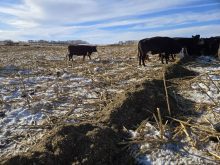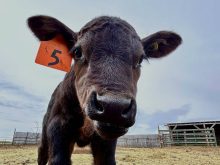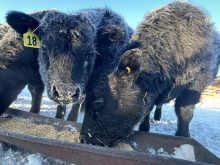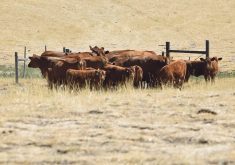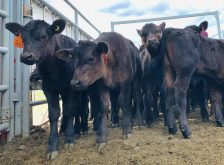The shortage of scour vaccine illustrates how the cattle industry can respond to issues that are bound to happen in a world with manufacturing failures, transportation issues and problems that can plague biological products.
There are three pharmaceutical manufacturers of scour vaccines, so when one is rumoured to run out, veterinarians search the others.
Many clinics stock two of the three types of scours vaccines because of administration timing. Two of them have most of the market share, so when one of the big ones goes down, it is unlikely the other two can make up the difference, especially when a shortage is in both the United States and Canada. Canada has much smaller market share, so the other companies can only provide a limited allotment.
Read Also

From MasterChef to ‘Barndominium’: Rootstock Ranch fires up the grill
Marianne Smeaton, from Charlie Lake, B.C., is opening an event centre with a menu featuring her homegrown Wagyu beef after appearing on MasterChef Canada’s finale.
All scours vaccines are decent, in my opinion. They vary in the timing of administration, so check for that if you switch brands.
What can producers and the veterinary clinics do if there is a shortage?
More ‘Beef 911’ with Roy Lewis: We have very safe pharmaceuticals, but they must be used properly
First, secure whatever you can, and hopefully the pharmaceutical companies will try to make it fair. Veterinarians may consider vaccinating only the client’s heifers, because this may have the most benefit. If doses are really short, even one vaccination may give protection because it comes to the calf through colostrum.
Producers have improved their colostrum management and timing, biosecurity, keeping the calving area very clean, and use of creep areas to lower stress on calves. Nutrition that leads to good quality colostrum has also been addressed.
Separating cow-calf pairs from the calving herd and using a type of modified Sandhills calving model also keeps scour outbreaks from spreading. There are also better treatments in terms of using electrolytes and NSAIDs (non-steroidal anti-inflammatory drugs) ahead of antibiotics because most scours cases are viral in origin.
[RELATED] Canadian Cattlemen: Pain control in cattle
There are other vaccines or treatments that deal specifically with a certain type of scours. If you are not overly concerned about E. coli scours, then Scour Bos 4 may help. It contains only the viruses. There is one intranasal vaccine that is effective against coronavirus scours. Immunity is quicker so it can be used in an outbreak.
An oral vaccine called Calf-guard is effective against corona and rota viruses that cause scours. It must be administered in the first 12 hours of life. Another product called Dual Force First Defense, also given in the 12 hours after birth, is effective against E. coli and coronavirus.
Talk to your veterinarian about these possibilities. The important thing is that you have specific options for specific types of scours.
If the clostridium perfringens organisms are (or have been) a cause of scours on the farm, the multivalent scours vaccines have those organisms in them, so cows vaccinated for clostridial (blackleg) disease will have protection for the scour-causing clostridials.
If scours occur in older calves, cryptosporidiosis is a possibility. There is no prevention for this in scours vaccines, so many producers have been advised by their veterinarians to use toltrazuril pills. In some herds, this has been a game changer. Treatment for coccidiosis is on the label of this product.
Scours can also be treated with the traditional kaopectate or activated charcoal to reduce severity of the diarrhea.
One cannot stress enough the need to be diligent if the diarrhea persists. Everyone should have an isolation pen and make sure there is a separate (and labelled) esophageal feeder for sick diarrheic calves and newborns. If you get one case, isolating the calf and its mother in a separate pen until fully recovered may prevent spread.
Vaccines are manufactured to have double the antigen necessary for protection. Veterinarians may suggest lowering the dosage to spread available vaccine further. Discuss the shortage with a veterinarian to see which solution will help.
By knowing there is a shortage and planning ahead, we may be able to keep scour prevalence at a low level.
If there is a shortage of vaccines, antimicrobials or ancillary treatments that are necessary to your cattle production cycle and you get a heads up, discuss it with your local clinic because it will have a back-up plan and options.
Have a great holiday season, everybody, and let’s hope for a great calving season in 2023.




